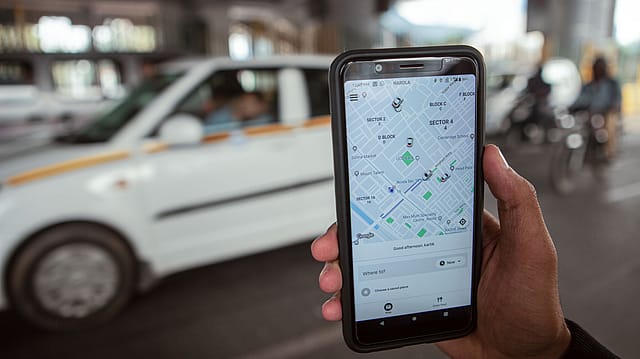Uber hikes fares across several cities amid high fuel prices
ADVERTISEMENT

Global ride-hailing aggregator Uber has raised fares across many cities in India in the wake of rising fuel prices. The move is also aimed at boosting the income of drivers working with the company, though it's going to affect the riders as they'll have to shell out more to take Uber cab rides. Fare prices have gone up in most big cities like Delhi-NCR, Kolkata, Hyderabad, and Mumbai.
The exact quantum of fare hikes and the total number of hikes since the onset of the Covid pandemic remains unclear, though the recent rise in fares is believed to be between 12-15%. Response to a query sent to Uber regarding the same is awaited. The story will be updated as soon as the reply is received.
As per Nitish Bhushan, head of central operations, Uber India and South Asia, the hike in fuel prices has impacted everyone, especially ridesharing drivers who have felt the pinch of rising fuel costs. "Over the past few weeks, we have raised Uber fares to cushion drivers from the impact of rising fuel prices across many cities in India," he says in a blogpost.
In addition to raising the fares, Uber Driver Advisory Council, which convened its first-ever meeting in March in Gurugram, took some other crucial decisions on empowering drivers, long-distance pick-ups, service quality essentials and payment flexibility. The decisions were taken to address challenges around driver reliability and service quality concerns. The Uber Driver Advisory Council facilitates a two-way dialogue between Uber and drivers to address critical issues and improve drivers’ platform experience.
Addressing the issue around drivers often cancelling the rides, Bhushan said Uber has launched an 'upfront destination feature', which is live across 20 cities and soon will be expanded to others.
"We understand the feeling you get when the driver calls and asks the dreaded question: “Jana Kahan Hai” and then cancels the trip. To remove frustration for riders and drivers alike, we are now showing trip destinations to drivers before they decide to accept the ride," Bhushan wrote.
Drivers meeting a predefined trip acceptance threshold will be eligible to get the destination information.
In the case of long-distance pick-ups, drivers will be compensated with additional earnings. The idea is to encourage drivers to accept more trips, which will benefit riders too. "Drivers will be able to see the earnings for long pick-ups, separately displayed on the fare receipt," Bhushan wrote.
Another big issue that was a bone of contention between drivers and Uber was not having flexibility around payment methods. The company will now show drivers the model of payment — cash or online — before the trip starts.
"This enables the driver to choose a cash-only ride if that’s what they need," says Bhushan. He also announced that the company has introduced a daily pay process for drivers, which automatically makes cash or online decisions irrelevant.
"This will ensure that trip earnings from Monday to Thursday, are credited to drivers the next day, while earnings from Friday to Sunday, are credited on Monday," Bhushan adds.
Apart from these changes, Uber has said it's also reinforcing service quality expectations with drivers, especially in areas like cancellations and ensuring AC rides. As per Bhushan, in addition to driver notifications and training, repeated complaints from riders on these service quality essentials could lead to penalties and even restricted app access.
Stating these are complex issues and there is no silver bullet, Uber has said it is "committed to listening to riders and drivers and delivering the Uber magical experience again".
Meanwhile, Uber's rival and homegrown ride-hailing platform Ola has also raised fares across multiple cities. Reports suggest the fares have been hiked by around 16% in big cities.
The fare hike by cab aggregators is being implemented in the wake of high fuel prices. Petrol in Delhi costs ₹105.41 per litre, while diesel cost ₹96.67 a litre. In the city of Mumbai, petrol costs ₹120.51 per litre, while diesel costs ₹104.77 a litre. At the same time, global crude oil prices are also high, with Brent crude hovering at $112.04 a barrel and WTI crude at $112.21 a barrel.